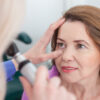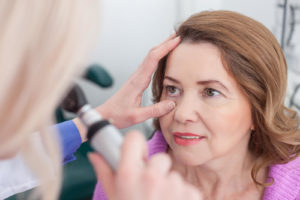
10 Surprising Things You Didn’t Know About Cataracts
It’s likely that you know someone suffering from cataracts. This eye disease is so common around the world, it affects each of us in some way. Perhaps you currently have perfect vision. You may be wondering why you need to learn about cataracts when you have healthy eyes. Unfortunately, everyone is at risk for developing them, especially later in life. The lifestyle you lead today can cause cataracts and other eye diseases in the future. The decisions you make in your diet, habits, and vision health today are crucial for tomorrow.
Here are 10 things you probably didn’t know about cataracts but will be glad you do now.
1. Cataracts Cause 51% of Blindness in the World
The CDC confirms the stat that over half of the world’s cases of blindness are due to cataract development. This statistic is explained by the lack of access to eye healthcare in developing countries. They stated that 95 percent of the world’s cataract development is age-related.
Many of these countries have barriers to healthcare. Geographical location, low income, and expensive health services all hinder their eye care. In first-world countries, we have better access to eye care and can slow down the onset of cataracts.
Remember, if cataracts are left untreated, they can cause complete vision loss.
2. Kids Can Develop Cataracts, Too
Cataracts are usually considered an adult and older age-related disease. However, people of any age can develop them including babies and kids.
Kids’ eyes are still growing and developing until the age of about 11. When pediatric cataracts develop before the eyes are fully grown, they can cause further problems. Cataracts can distort the child’s vision, and even lead to a lazy eye.
Surgery is usually required for pediatric cataracts. Although it’s unfortunate for your child to require eye surgery, it may be crucial to their eye health.
3. The Symptoms Can Vary
Some people won’t notice any symptoms of cataracts in their eyes or vision until an eye doctor points it out. Therefore, it’s so important to get regular eye exams.
When patients do have symptoms, they’re usually one or more of the following:

- Cloudy vision
- Seeing a halo around lights
- Extreme glare
- Diminished night vision
- Colors appear dull
- Requiring extra light to see clearly
Some people will notice their glasses or contact lens prescription needs to be adjusted frequently. This is a sign that your vision is being distorted and you should see an eye doctor.
4. Sunglasses Can Save Your Eyes
Ultraviolet (UV) rays from the sun can damage your eyes and increase your risk for cataract development.
When the UV light damages your lens’ proteins, glycation occurs. This allows for speedier cataract development. In one study, a group of mice was exposed to UV light for 12 months. Each one had damaged glycated proteins and suffered retina denaturation.
Invest in UV-protected sunglasses and wear them whenever you’re out in the sunlight. Also, remember to protect your eyes in the winter, too. The light reflected off snow can cause snow blindness, so make sure you don’t ditch them when summer ends.
5. Smoking Puts You at a Higher Risk
Unfortunately, this bad habit increases your chances of developing cataracts. The free radicals in tobacco smoke damage the lens proteins and cell membranes in your eyes. It also reduces the antioxidants in your body which are crucial to healing and protecting those cells.
The smoke from a cigarette can blow into the eyes which damages them from the outside. And, the smoke you inhale into your lungs can damage them from the inside.
Smoking puts you at a higher risk for other eye diseases as well, like glaucoma and cancer.
6. Cataract Surgery Is Risky
Although it’s an effective way to remove cataracts, having surgery on your eyes makes you vulnerable to various complications. The normal risks of surgery include infection and excess bleeding. Both can occur with cataract surgery so make sure your surgeon has substantial training and experience.
A serious complication from cataract surgery is a retinal detachment. You won’t notice if this has occurred to you right away after surgery because it doesn’t cause pain. However, you may notice floating flecks in your vision. If you experience this, know that it’s a serious medical issue and you need to see a doctor immediately.
Make sure you understand all the risks of cataract surgery before you commit to it. And, know that there are lots of natural remedies that prevent cataracts.
7. They Take Years to Develop Fully
Cataracts aren’t a fast-moving condition. You may not even notice their progression until more obvious symptoms occur.
You should be getting regular eye exams to check the health of your eyes and to analyze your vision. Doctors often notice abnormalities before we do. Also, it’s never too early to start taking preventative measures.
8. Antioxidants Can Delay the Onset of Cataracts
Oxidation is a process that occurs when free radicals damage your eyes’ cells. Free radicals are naturally occurring in the body, but without antioxidants to balance them, they damage cells.
You should ensure your diet is full of antioxidant-rich foods. These include fruits, vegetables, beans, dark chocolate, and others.
Fruits and veggies are especially beneficial to eye health because they contain phytonutrients. Phytonutrients are beneficial in slowing down eye diseases and encouraging overall eye health.
9. Supplements Are a Great Alternative
Does your diet lack nutrient-rich foods? If so, you should consider taking a natural supplement for eye health, like our Ocu-Plus Formula.
Some of us don’t have the time to plan a well-rounded diet or have food restrictions due to other health issues. In both cases, a supplement is a great alternative. Ocu-Plus Formula has 17 crucial vitamins and minerals in each pill and no preservatives.
10. Overuse of Eyes Can’t Make Them Worse
Some myths about cataracts say that using your near vision too much can cause cataracts to speed up their progression. This simply isn’t true.
The way you use your eyes has nothing to do with the clouding of your lenses. However, during certain activities like staring at a computer screen, you may notice symptoms more clearly. Factors like lifestyle, diet, access to healthcare, and genes will affect whether you develop cataracts. But not eye use in general.
Our Rebuild Your Vision Ocu-Plus Formula Contains All 17 Vitamins, Minerals, and Herbal Supplements to Protect Against Cataracts!













i have diplopia how can i correct this
Thank you for your information. I have cataracts, but I take “Acetyl Carnosine” and it helps keep them in check. I also take DMSO directly in my eyes, and I believe the cataracts are dissolving. This is controversial, but I am persuaded that it is a safe method of removing them.
Ron
Is there any method currently to “dissolve” cataracts?
thanks so much
my elderly mother of 89 has them so veru sueful info